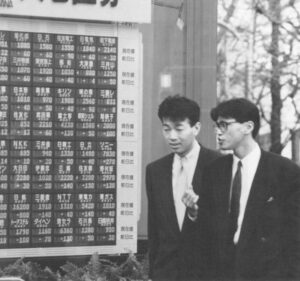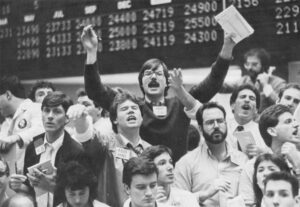Gregory Millman
- 1992

Fellowship Title:
- How Financial Markets Invented During the 1980s Have Changed Our Lives
Fellowship Year:
- 1992

Vigilante Economics: How Wall Street Shattered Tokyo and London gave Frankfurt Woe
In September 1992, the vision of united European nations sharing something like a common currency was swept away like a mirage by international currency traders who forced Britain’s withdrawal from the European exchange rate mechanism (ERM). With the economy of Britain already in recession, Prime Minister Major’s often-repeated commitment to British membership in the ERM meant sacrificing more jobs, more homes, more people on the altar of monetary stability. Currency speculators bet that the sacrifice would be too great to sustain. They won and won big. Britain withdrew from the ERM, even as speculators at-rayed their forces against the other currencies in ERM. The currency speculators moved like a tide, and government authorities who stood against them had only the reed of rhetoric, which could not stop the tide. The recent crisis in Europe was a clear case of vigilante justice in the economic sphere. But it is only the clearest, most recent and most visible case of vigilante economics at work. When Major vowed to protect Britain’s currency against devaluation and inflation, he offered

Approaching Financial Meltdown
On March 27, an Azerbaijani missile hit an Aeroflot jet and bounced off without exploding. But the news broke into bank trading rooms as rumors of war between Russia and the Ukraine, sending shivers throughout the international currency market. SIDEBAR – What, Me Worry? Keeping The Faith With Derivatives The recent Japanese stock market collapse cost some U.S. pension plans a bundle. Of course, these sophisticated investors knew there was a chance of losing money when they invested in Japan. After all, investing in the stock market means taking a risk that stocks could go either up or down, making you richer or making you poorer. Right? Well, not exactly. Wen pension fund managers of TRW, a Fortune 500 industrial company based in Cleveland, decided to put a $50 million bet on the Japanese stock market, they managed to do it in a way that guaranteed them they wouldn’t lose money no matter what happened to Japan. That’s impossible if you buy stocks, so TRW bought a $50 million bond from a U.S. company instead.
